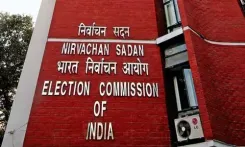What are the Objectives of Chhattisgarh’s ‘State Logistics Policy’?

Synopsis
Key Takeaways
- Chhattisgarh Cabinet approves State Logistics Policy-2025.
- Aims to enhance logistics and export capabilities.
- Focus on developing dry ports and container depots.
- Supports MSMEs and local producers.
- Promotes employment generation and sustainability.
Raipur, June 30 (NationPress) The Chhattisgarh Cabinet has officially endorsed the ‘State Logistics Policy-2025, a detailed initiative aimed at establishing the state as a prominent logistics and export center.
This policy is in harmony with India’s National Logistics Policy and focuses on decreasing logistics expenses, enhancing industrial competitiveness, and improving export potential, according to Deputy Chief Minister Arun Sao.
Chhattisgarh’s unique geographic positioning at the core of India provides a significant advantage for both interstate and international trade.
Among its primary goals is the creation of dry ports and inland container depots to assist micro, small, and medium enterprises (MSMEs) and local producers in accessing both domestic and international markets.
This infrastructure will ensure smooth connectivity between production areas and distribution networks, thereby cutting down transit times and boosting supply chain efficiency.
The Logistics Policy-2025 capitalizes on this by promoting investments in multimodal transport infrastructure, warehousing, and digital logistics systems.
It aims to attract national and international logistics companies, along with e-commerce firms, through specific incentives and streamlined land acquisition.
The initiative also seeks to build a strong storage network to support industries, traders, and farmers.
By enhancing cold storage and warehousing capabilities, it aspires to decrease post-harvest losses and reduce storage costs.
This, in turn, will aid agricultural and forest-based producers, especially in forest-rich areas like Bastar and Surguja, by facilitating the export of medicinal plants, non-timber forest products, and tribal crafts.
Generating employment is a fundamental objective of the policy.
By formalizing the logistics sector, the state expects to create thousands of direct and indirect job opportunities, specifically in transport, warehousing, packaging, and IT-enabled logistics services.
Furthermore, the policy advocates for sustainability by promoting fuel-efficient transportation, eco-friendly packaging, and digital tracking systems to minimize the state's environmental impact.










